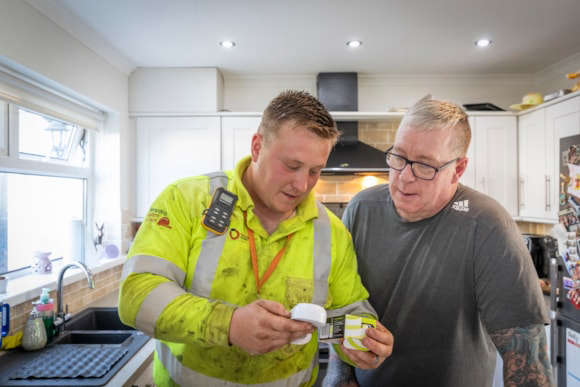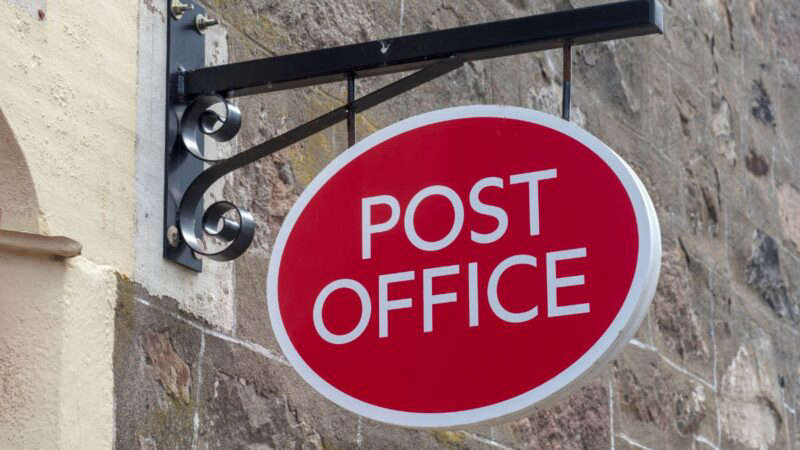
As carbon monoxide awareness week (17 – 23 November) begins, the company that operates the gas distribution network, Wales & West Utilities, is urging everyone to test their carbon monoxide (CO) alarms today and take a simple, potentially lifesaving step to protect themselves and their loved ones from the ‘silent killer’.
Recent figures across the company’s operating area - Wales and the south west of England - reveal worrying hotspots for carbon monoxide incidents. The gas emergency and pipeline service is reporting that the areas with the highest numbers of confirmed and suspected cases are Swindon, Bristol, Wiltshire, Cardiff, and Somerset. At the same time, Swindon, Bristol, Wiltshire, Gwynedd, and Monmouthshire record the highest incident rates per 1,000 residents.
These figures, from the Carbon Monoxide Research and Analytics (CORA) platform, which is supported by Gas Distribution Networks Wales & West Utilities, Cadent, Northern Gas Networks and SGN, highlight the need for urgent awareness and action across the region - particularly as the colder months begin and homes rely more on gas and solid-fuel heating.
A preventable tragedy
Emma Jackson-Phillips, 35 and living near Bridgend, knows the devastating impact of carbon monoxide all too well. Her father, Fred, died at just 52 years old after being overcome by carbon monoxide while working away from home in Cornwall.
“Dad was extremely healthy - a vibrant man with a lot of get-up-and-go.
“He thought he just had a flu-type bug. When he didn’t turn up for breakfast, a colleague called his room and he said he wasn’t feeling good but would take a shower and come down soon. Sadly, he never made it.”
Fred had unknowingly been exposed to high levels of carbon monoxide, which took hold quickly.
“My dad’s death, like too many others, was entirely preventable.
“Had an audible CO alarm been present in his room, it would have alerted him to act - and he’d still be with us today.”
Now a mother of two, Emma says the loss only grows harder as the years go by.
“I want CO alarms to have the same prominence as smoke alarms. A CO alarm costs around £15 - a small price to pay to save a life. Whether at home, in a hotel, or in a caravan, please make sure you have one. I don’t want anyone to go through what we have.”
Rob Long, Chief Operating Officer at Wales & West Utilities, said:
“Carbon monoxide is invisible, silent, and deadly - but entirely preventable. We’re urging every household to press the test button today on their CO alarm, and if you don’t have one, buy one immediately - it could save your life.
“Carbon monoxide kills approximately 40 people every year in England and Wales and hospitalises many more.
“We want people across the UK to understand its grave dangers and make sure they take every step they can to protect themselves and their loved ones from its dangers.
“This CO awareness week acts as a timely reminder to take action so everyone can stay gas safe this winter.”
Carbon monoxide is known as the ‘silent killer’ and symptoms of CO poisoning can be mistaken for food poisoning and the flu, due to their similarities, which can include headaches, tiredness, nausea, dizziness, drowsiness, shortness of breath and, in extreme cases, loss of consciousness. The most significant source of exposure to carbon monoxide for the general public is from cooking or other fuel burning appliances, such as home boilers and log burners. The risks of carbon monoxide poisoning increase if these appliances are poorly installed, faulty or used inappropriately without adequate ventilation and maintenance.
During CO awareness week, everyone is encouraged to stay safe by taking simple actions including:
- Get an audible carbon monoxide alarm in every room with a gas appliance and test it regularly.
- Have all your gas appliances regularly serviced and safety checked every year by a Gas Safe register engineer. If you rent your home, ask for a copy of the landlord’s current Gas Safety Record.
- Know the signs of carbon monoxide: Look out for your gas appliances burning a floppy yellow or orange, not crisp and blue; pilot lights on boilers frequently blowing out; extra condensation inside your window; soot or yellow stains around appliances.
- Know the symptoms of carbon monoxide poisoning: similar to the flu or food poisoning without a high temperature.
- If your alarm sounds, or you suspect carbon monoxide, take action: move outside into fresh air, leaving doors and windows open as you go. Then call the National Gas Emergency Service on 0800 111 999. In a medical emergency, don't delay, call 999 immediately.
For more information, resources, and safety advice, visit: https://www.wwutilities.co.uk/services/safe-warm/carbon-monoxide/.

 Hospiscare needs your help with a unique ‘double your money’ fundraising challenge
Hospiscare needs your help with a unique ‘double your money’ fundraising challenge
 County Council invites residents to help shape 2026/27 budget
County Council invites residents to help shape 2026/27 budget
 ‘Pop-up’ vaccination clinics being held in several communities this week
‘Pop-up’ vaccination clinics being held in several communities this week
 Rural areas to be hit hardest by Lloyds’ removal of cheque deposit facilities at Post Offices
Rural areas to be hit hardest by Lloyds’ removal of cheque deposit facilities at Post Offices











